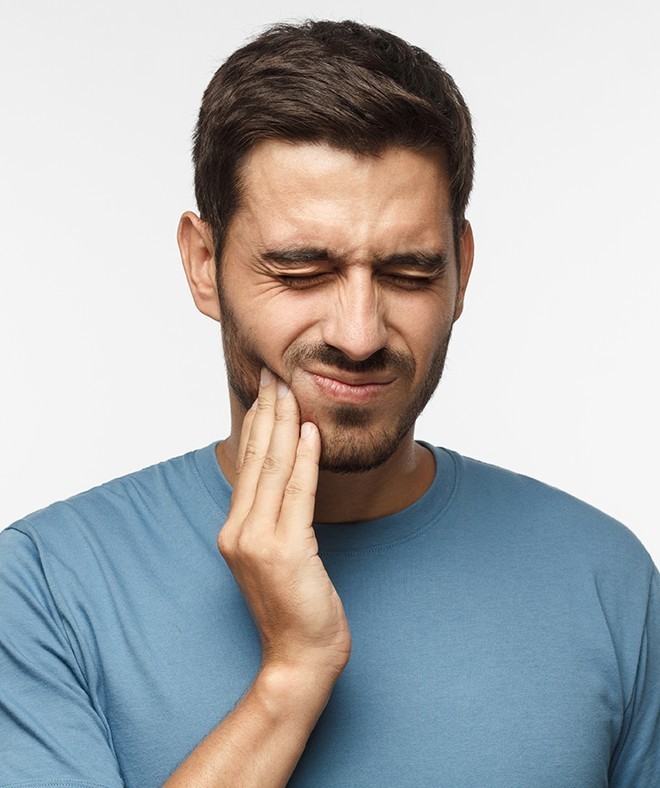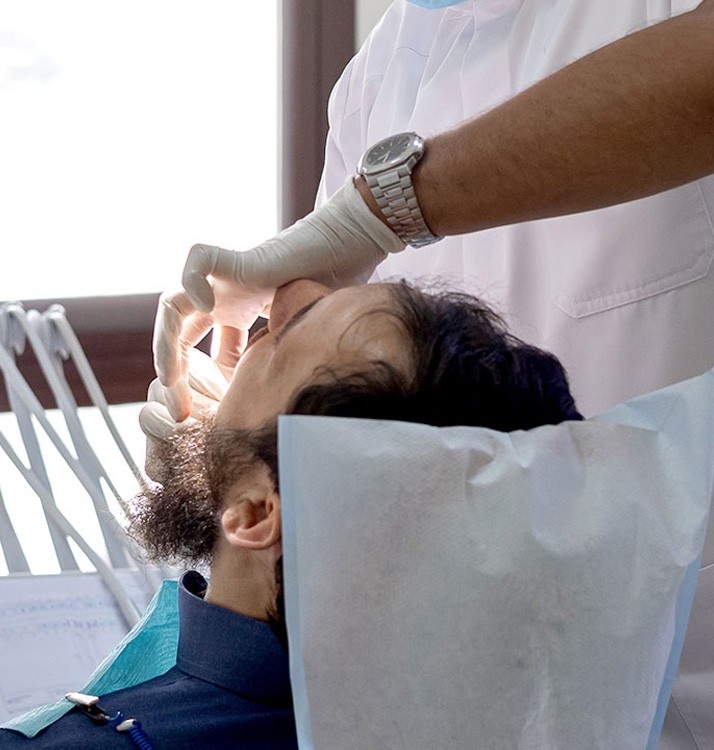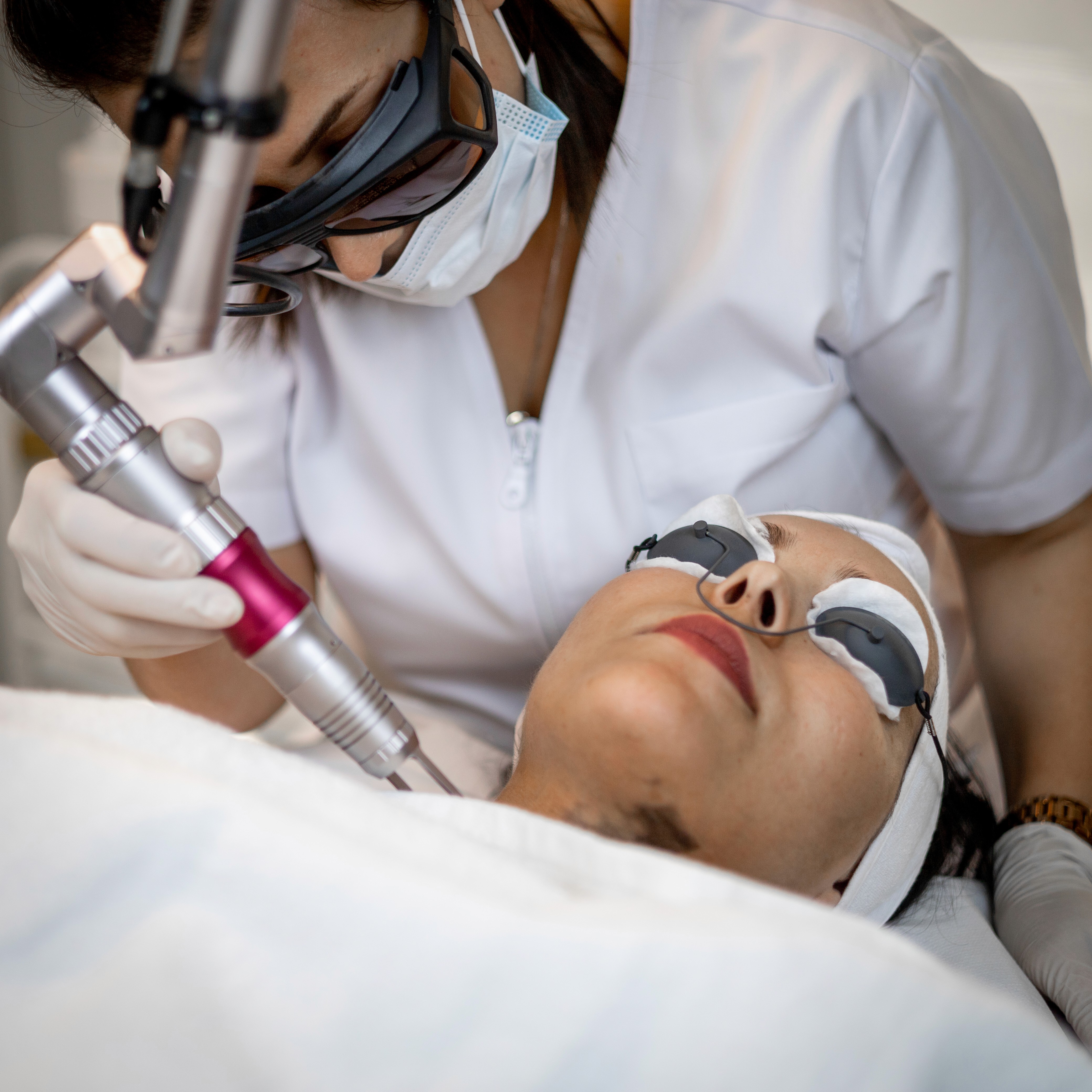May 14, 2024
Are you suffering from pain or discomfort in your jaw? You may likely have TMJ (Temporomandibular joint) problems.
The temporomandibular joint, or the TMJ, is the joint that connects your lower jaw to your skull. The joint can be found on both sides of the head in front of the ears. The TMJs help with movements such as eating, chewing, and speaking.
TMJ disorders or dysfunctions are conditions that affect your jaw joints as well as surrounding muscles and ligaments. They occur when the jaw joints, teeth, and facial muscles are out of alignment.
TMJ disorders are when there are problems with your jaw joints or the muscles in your face around your TMJ, or a combination of both joint and muscle problems. These disorders or dysfunctions are abbreviated as “TMD” or “TMJD”, but it is often referred to as simply “TMJ”, which is the name of the joint.
But you may be wondering how to tell if you have TMJ. In this blog, we will discuss the signs and symptoms of TMJ, as well as the causes and treatment options available.
What Are the Symptoms of TMJ?

There are numerous signs that would indicate you have TMJ jaw problems. These symptoms include jaw pain or stiffness, clicking or popping sounds in the jaw, difficulty chewing, headaches, or earaches. If you are experiencing the following, it could mean that you have TMJ:
Jaw Pains
Jaw pain can be pain or stiffness in your jawbone or the area around your ears. You can experience pain or discomfort in the jaw, especially when you are eating. You may have jaw pain when chewing, biting, and even yawning. You could feel pain when moving the jaw, and this could mean that you have TMJ problems.
Clicking or Popping Sounds in the Jaw
When you open your mouth, close your mouth, or chew, do you hear clicking or popping sounds in the jaw? This is a very common symptom of TMJ, so if you do hear such sounds, you could have TMJ disorder. This symptom may or may not be painful.
Additionally, it is important to note that this symptom alone is not enough to conclude that you have TMJ. When the clicking or the sounds are accompanied by pain or limited movement of the jaw (for instance, your jaw gets stuck in an open or closed position), this could mean that you have a TMJ disorder, signifying that you should seek medical advice.
Frequent Headaches or Migraines
Your jaw is connected to your skull; thus, jaw pains can lead to headaches too. If you wake up with a headache or a migraine every morning, this definitely means that there is a problem. Sometimes, these headaches or migraines can be associated with TMJ problems.
So, if you are suffering from frequent headaches or migraines, and they are coupled with other symptoms such as jaw pain or difficulty chewing or biting, you should visit your dentist.
Tinnitus or Ringing in Your Eyes
Ear ringing is another common symptom of TMJ because the jaw and the ears are interconnected. The sounds that fill your head can sound like ringing, clicking, or buzzing. You may be experiencing earaches too, and these are things that can be associated with TMJ problems.
Locking of the Jaw
Another common TMJ symptom is locking of the jaw, or a locked jaw. This is when your mouth gets stuck or locked in an open or closed position as the joint slips out of alignment. You may have trouble opening your mouth wide or closing it again.
When you do get to move it, your jaw will get into place with a loud pop or click. It is important that you do not ignore this symptom, and if you regularly get a locked jaw, you should talk to a medical professional.
Limited Movements
You can be experiencing limited movements such as opening your mouth fully. You may not be able to move your jaw in certain directions, and this can cause discomfort and even pain in your everyday life.
Difficulty Chewing or an Uncomfortable Bite
You may find it difficult to chew or are suffering from a bad bite, and it’s because your jaws are out of alignment. You may feel like your teeth are not closing properly and you might have difficulty with food that is chewy or crunchy. If you have difficulty chewing or an uncomfortable bite, it could be a sign of TMJ disorder.
Dental Issues: Problems with Your Teeth
TMJ disorders can lead to problems with your teeth, such as worn, cracked, or broken teeth. People with TMJ problems tend to clench or grind their teeth, which could lead to such problems. Additionally, TMJ disorders can also affect the health of your teeth. They can give you tooth pain, changes in gum health, and an increased risk of developing cavities.
Pain in the Neck and Shoulders
You can also experience pain in the neck and shoulders. The muscles of your jaw help keep your head and neck aligned. The muscles surrounding the jaw joints connect to the neck muscles, and the latter also connect to the muscles in your shoulders. Jaw pain can lead to pain in other parts of the body such as the neck, shoulders, and upper back.
Numbness or Tingling in the Fingers
Jaw disorders can also cause numbness or tingling in your arms and fingers, and when this is associated with other symptoms of jaw problems, it’s time to seek medical advice and treatments.
What Causes TMJ Jaw Problems?
TMJ problems can be caused by a number of factors, such as the following:
Grinding or clenching your teeth
Arthritis in your jaw joint
Jaw injuries, like a broken or dislocated jaw
Stress, as this can cause you to clench your teeth or tighten facial and jaw muscles
Misalignment of the teeth or jaw
Medical Treatments for TMJ Disorders
TMJ disorders are treatable. Treatments for TMJ problems include medications, oral appliances, dental work, physical therapy, and in severe cases, surgery.
Your dentist can prescribe medications that can ease the TMJ symptoms. They can also recommend physical therapy, which includes exercises to stretch your jaw and strengthen the muscles around your jaw joints.
Dental appliances such as oral splints and mouth guards can help reduce the effects of teeth grinding and clenching. You can get a custom mouth guard from your dentist. Your dentist can also use crowns, bridges, or braces to correct a bite problem or balance the biting surfaces of your teeth.
And in the most severe cases, your dentist could recommend surgery to treat your condition. It is better to choose the best dental clinic for treating TMJ.
Bella Medical Centre offers TMJ treatment to people suffering from bad bite, jaw pain, and other symptoms of TMJ. Our skilled orthodontists can determine a treatment plan tailored to your needs.
Do you have TMJ jaw problems and are in need of medical treatments? Contact us today!





